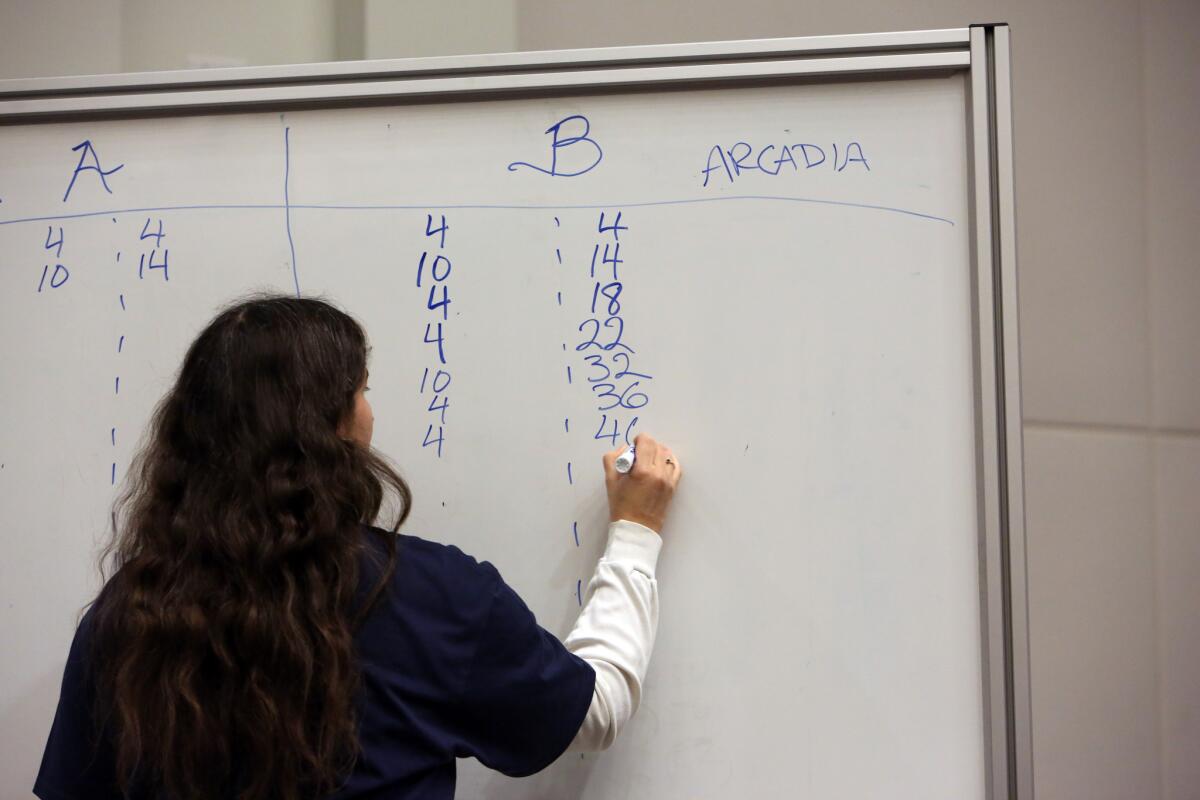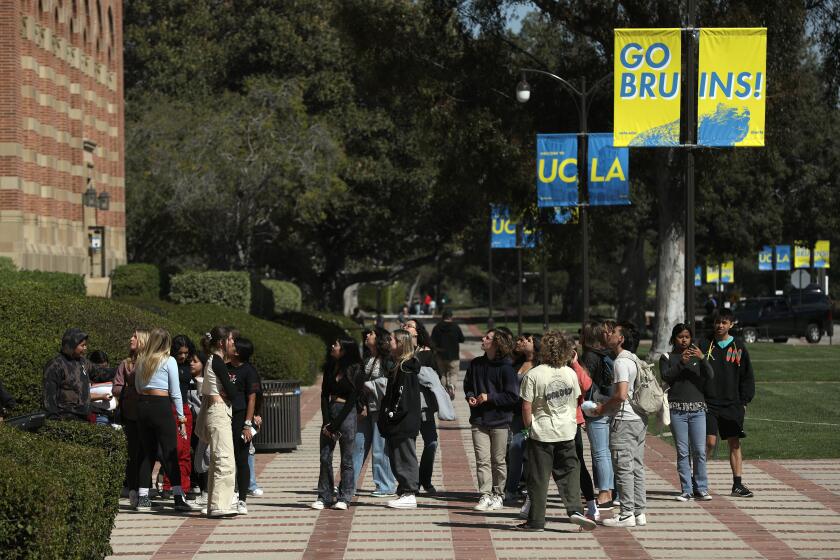These new laws will try to help California’s vulnerable students

One new law requires a placement policy for math classes.
- Share via
Among the many state bills that passed in 2015, and take effect Friday, are a number that focus on some of the state’s most vulnerable students —those who are homeless, in foster care, potential victims of sexual assault and those kept out of advanced classes which hurts their ability to go to college.
Here are some of the new laws that politicians and education activists hope will help those students.
Punishing and preventing sexual assault
Sexual assault on college campuses has become a national issue over the last few years, particularly after the U.S. Department of Education’s Office for Civil Rights opened investigations into more than 100 universities for allegedly mishandling sexual abuse reports.
A new law addresses sexual assault on community college campuses, allowing those schools – which are typically commuter campuses -- to expel or discipline a student for an off-campus sexual assault.
Another law requires high schools to teach students about sexual assault prevention and affirmative consent during health education classes. In a law passed in 2014 requiring colleges to implement affirmative consent policies, affirmative consent is defined as “affirmative, conscious, and voluntary agreement to engage in sexual activity” from both parties.
There are also laws intended to protect K-12 students from sexual abuse at school, and from being blamed when they are abused. One law requires that the state’s Department of Education develop “best practices” to prevent sexual abuse on campuses and to publicize training for school districts.
Another prevents adults in authority positions from claiming that children consented to sexual acts, and will prevent them from using a child’s sexual history as proof of consent in a civil case. L.A. Unified drew criticism for this tactic — an appellate court ruled earlier in 2015 that LAUSD could not blame a 14-year-old for a sexual encounter with a teacher.
Equal access to advanced classes
Responding to complaints that black and Latino students are underrepresented in many advanced classes, legislators approved a bill to focus on math, requiring that school districts come up with “a fair, objective, and transparent mathematics placement policy” to place students in advanced mathematics classes, and to place that policy online.
The law focuses on math rather than other classes because Algebra II or its equivalent is required for admission to UC and CSU campuses in California, and this practice of tracking can prevent students from completing those classes, said David Plank, Stanford education professor and executive director of Policy Analysis for California Education.
“The problem now is that this has been a completely opaque process just left up to math counselors or teachers,” Plank said. “Now districts have to write down how those decisions are made. And once there’s a rule, that rule can be challenged.”
Helping homeless and foster students
About 270,000 children were homeless at least once during the 2012-2013 school year in California, and more than 50,000 children were in foster care in the state in 2014. Many of these students are underrepresented youth—many homeless youth are members of the LGBT community, while black students are overrepresented in foster care.
The two groups often need similar services. For example, foster youth are already allowed to stay remain in one school of origin if they move to a different area, they are exempt from certain graduation requirements even after they are out of foster care, and they receive housing priority in college. A batch of new laws extend those rights to homeless students.
There’s also a law allowing homeless youth to receive state funding for high school equivalency -- or GED -- exams.
One new law requires the state Department of Education to develop a notice on foster students’ rights, and post it online, while another specifies the complaint process foster youth can use if they are not receiving all the services and exemptions to which they are entitled.
Reach Sonali Kohli on Twitter @Sonali_Kohli or by email at Sonali.Kohli@latimes.com.
More to Read
Sign up for Essential California
The most important California stories and recommendations in your inbox every morning.
You may occasionally receive promotional content from the Los Angeles Times.











